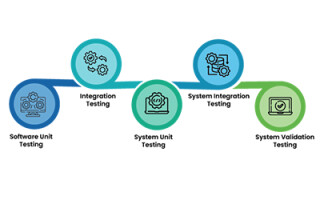From healthcare to smart lighting, the IoT is transforming every industry
July 14, 2017
Blog

Here are some of the ways IoT is making an impact in healthcare, the public sector, and our homes and offices.
The Internet of Things (IoT) is all around us. Cities, businesses, and consumers everywhere are building IoT capabilities into systems and assets of all kinds. Decision-makers are recognizing the potential that the IoT offers, from enabling better communication between systems, to offering improved data insights, to increasing safety. In fact, according to Vodafone’s 2016 IoT Barometer, more than 75 percent of vendors consider the IoT critical for the future success of any company in their industry.
While we’re just beginning to see the full potential of the IoT, the technology is already impacting every industry. Here are some of the ways IoT is making an impact in healthcare, the public sector, and our homes and offices.
Digital technology is revolutionizing the healthcare industry, and the IoT is at the forefront of a new set of capabilities that are changing the way we approach patient care. By providing access to critical, real-time data, IoT tools let doctors and patients make better, more informed decisions.
Patients can also better track their own health. For example, Smart Meter, a services provider for diabetes management, uses the IoT in its iGlucose platform. An iGlucose meter wirelessly sends blood glucose readings and other information to a personal web portal. Within the portal, users can access trend reports that are automatically updated each time they test their blood glucose levels. The user can also automatically share reports with others via text message or email.
Driving efficiency in the public sector
IoT capabilities are set to enable the smart cities of the future, and they’re already improving public services and utilities in countless ways. The instant data access IoT platforms provide, combined with the ability to manage systems remotely, can drive energy and cost efficiencies for cities.
For instance, IoT-enabled street lights can be set to brighten when cars or people are nearby, and dim when the area is quiet. This can help cities conserve energy and make streets safer. IoT technology can also help alleviate traffic congestion in cities with smart parking, by informing drivers in advance about the location of available parking spaces, thereby helping reduce traffic issues and carbon emissions in cities.
Making homes and offices smarter
The same technology behind smart cities is also improving our homes and offices, making them safer and more comfortable. IoT-enabled lighting, security cameras, and alarms can give businesses and homeowners peace of mind while they’re away. These types of devices often offer control via smartphone or tablet, allowing owners to monitor and control their properties remotely.
In office buildings, IoT can also connect systems like boilers, elevators, and HVACs. By automating these systems, building managers can get a much clearer sense of how they’re being used, helping them save energy.




